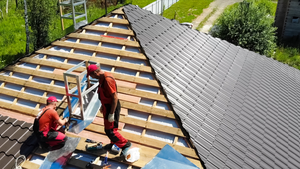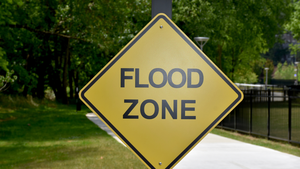Florida’s Property Insurance Crisis for Smart Protection Choices
Home Insurance is still a hot topic in Florida. We met with Old Town Insurance in St Augustine and learned a lot about what you as a home buyer and homeowner need to know and that is what we are talking about today so let’s get to it.
Today, we’re continuing our in-depth series on home insurance in Florida based on our conversations with Old Town Insurance right here in St. Augustine. If you haven’t seen part one, I highly recommend checking it out after this video so I’ll be sure to share it at the end.
Florida Homeowners Insurance Crisis Explained:
 Let’s begin by reemphasizing the importance of roofs. Our first video which I will link at the end of this video, was focused heavily on roofs and that’s because right now that is the number one thing carriers are looking at. The age and state of your roof are key factors in insurance eligibility. For older homes, ensure you have a wind mitigation or a 4-point inspection report. A roof nearing the end of its life span may result in insurance carriers declining coverage.
Let’s begin by reemphasizing the importance of roofs. Our first video which I will link at the end of this video, was focused heavily on roofs and that’s because right now that is the number one thing carriers are looking at. The age and state of your roof are key factors in insurance eligibility. For older homes, ensure you have a wind mitigation or a 4-point inspection report. A roof nearing the end of its life span may result in insurance carriers declining coverage. Another critical aspect for Florida homeowners is understanding flood zones. Being in a flood zone, especially AE, can significantly impact insurance rates. Although not mandatory for a quote, obtaining a Flood Elevation Certificate can greatly reduce your rates. If you are in a flood zone and are with Florida’s Citizens Insurance, Flood Insurance is required. so you will absolutely want to invest a few hundred dollars on an elevation certificate, especially if your house has never flooded.
Another critical aspect for Florida homeowners is understanding flood zones. Being in a flood zone, especially AE, can significantly impact insurance rates. Although not mandatory for a quote, obtaining a Flood Elevation Certificate can greatly reduce your rates. If you are in a flood zone and are with Florida’s Citizens Insurance, Flood Insurance is required. so you will absolutely want to invest a few hundred dollars on an elevation certificate, especially if your house has never flooded.“Let me give you an example of how this certificate can save you $1000s. Olde Towne Insurance had a customer who wanted to stay with Citizens Insurance, the house was located in a flood zone AE so flood insurance was required. After the initial quote came in at almost 11,000 dollars. Old Towne encouraged the homeowner to get an Elevation Certificate Once he did, the quote came down to $2,000, so as you can see the cost of a few hundred dollars for an Elevation Certificate is totally worth it.”
Okay, if your home is in a flood zone and it’s been flooded before, insurance can cost a lot. Old Town Insurance says the best way to save is by lifting your house, but that’s pricey. Here’s a trick called a glide path: you can use the old owner’s policy to save money for a bit. It keeps the rate stable until renewal, and it can only go up 18% a year. So, it’s like a slower increase.
Important tip: don’t let your insurance stop. You can’t restart a lapsed flood policy. If it stops, you’ll pay more when you get a new one. Cool? Keep your insurance in check!”
So what are some other red flags for insurance companies that buyers and sellers need to be aware of. You already know that old roofs are going to be a challenge so get a wind mitigation or a 4-point inspection on older roofs. This is something a homeowner can do as well before listing their property to ensure there is no issue with the home’s eligibility for insurance and to avoid any bumps in the road later.
Apart from roof conditions, problematic plumbing systems like polybutylene and galvanized steel are issues. These two types of plumbing will need to be replaced to be eligible for insurance.
 Water heaters and HVAC systems also play a role; There are certain carriers that won’t write a policy if the water heater is more than 15 years old. Luckily that is an easier item to replace. HVAC, is usually not an issue, however, an issue if you do need to get a 4 point for the roof, the AC system will be included on that report so as long as it’s in good working order then it should not be a problem.
Water heaters and HVAC systems also play a role; There are certain carriers that won’t write a policy if the water heater is more than 15 years old. Luckily that is an easier item to replace. HVAC, is usually not an issue, however, an issue if you do need to get a 4 point for the roof, the AC system will be included on that report so as long as it’s in good working order then it should not be a problem.If you are interested in Historic homes, we have a lot of them in downtown St. Augustine and they require careful consideration. The first question to ask is whether the property on the historic registry, these homes can be harder to insure. and Remember, any asbestos present in a home can disqualify the home from insurance.
When looking at coastal property, each insurance carrier has different guidelines regarding proximity to the coast and wind coverage. The more distant the property is from the coast, the more insurance options are available.
There are carriers that won’t write anything including wind on Anastasia Island. Some have a 2-mile buffer to water, some want to know how far to tidal water and that includes the ocean and rivers. So the closer to the coast the fewer options you will have for insurance.
Let’s talk about condos because most of the communities here have seen their monthly association fees going up due to the rising insurance costs. Falling under commercial insurance categories. Insurers evaluate the construction details, roofing, and other factors. Some carriers have specific restrictions, such as not insuring older wood frame buildings or properties over four stories. So these are things to consider if buying a condo in Florida.
The good news is there are ways to lower your premium:
Number 1, A Wind Mitigation: A wind mitigation report includes the shape of the roof. What kind of roof-to-wall connection, clips, tie-downs, etc. A hip roof for example gets a better discount (this is a roof where all 4 sides come down like a pyramid. It gets a better discount because It deflects the wind better. For homes built before 2003, a wind mitigation report can unlock discounts on insurance for you and this becomes crucial for homes over 30 or 40 years old.
Number 2, Hurricane impact glass windows or hurricane shutters. If you install either of these, it has to be every door and window in order to get the credit.
Number 3, A good credit score, the better your credit the lower your rate will be 795 and up is the best.
For both buyers and sellers, we have prepared checklists to consider before buying or selling. The insurance landscape is evolving, and staying informed is key. So ask the right questions, and always seek professional advice.
If you haven’t watched part 1 of our insurance series, check it out right here. Send your questions my way or comment below. I’m happy to help! https://yourkeytostaugustine.com/contact/
Thank you!